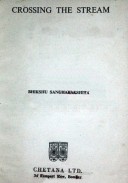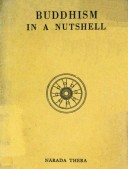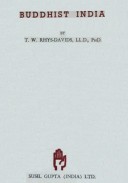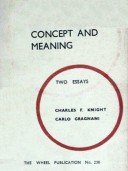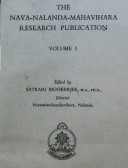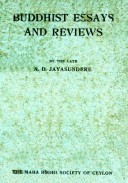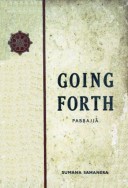Tìm Sách
Sách tiếng Anh-English >> Malayan Buddhism A critical Examination
Thông tin tra cứu
- Tên sách : Malayan Buddhism A critical Examination
- Tác giả : Teoh Eng Soon
- Dịch giả :
- Ngôn ngữ : Anh
- Số trang : 87
- Nhà xuất bản : Eastern Universities Press Ltd. Singapore
- Năm xuất bản : 1963
- Phân loại : Sách tiếng Anh-English
- MCB : 12010000002877
- OPAC :
- Tóm tắt :
MALAYAN BUDDHISM
A CRITICAL EXAMINATION
By TEOH ENG SOON
FOREWORD
It is often claimed that the writings of Dr. Teoh Eng Soon are controversial in nature. I have every reason to believe that this characterization is a true one and, I may as well add, I am rather happy that such is the case. Why? Because the verdict of history is that any system, be it religious, political, philosophical or social, that no longer arouses sufficient public interest to bring about the existence of widely varying viewpoints, with attendant controversy, is in such a moribund state that an unobstructed road to death lies before it. The very fact that Dr. Teoh's writings bring forth marked reactions bodes well for the healthy dynamic appeal of Buddhism as a well thought-out way of life. When all traces of disputatiousness depart from our religion, then and probably then only, will our religion be on its way out of the scheme of human life.
It would be nonsensical to maintain that a religion claiming the adherence of enormous segment of the entire human race and being more than twenty-five centuries old would not inescapably accumulate a certain number of abuses both in theory and practice. It is pointless to claim that Buddhism, alone among all human organisations, is free from abuses of any nature whatever. Dr. Teoh sees this point with starting clarity and attacks such abuses, not out of any joy in being a fault-finder, but out of hope that the dark situation may be relieved by the simple expedient of bringing light to bear on dark corners. I believe I have every reason to hold that Dr. Teoh has presented his case well and with admirable succinctness. A careful reading of the present volume may anger some and delight others, but it seems altogether unlikely that it will leave any sincere Buddhist totally unmoved one way or another.
It is a fundamental point in all religions that all life is a struggle, a form of war. The Buddhist idea is that the only truly desirable form of warfare is a concerted struggle to overcome human ignorance, which we conceive of as being the parent of all “sins” and ills of whatever nature. Books roll off presses in ever increasing numbers but only a few examples of this flood of writing do anything of real value in changing people`s thinking. Fewer still are those books that prompt people to act as well as think. If this slender volume will lead even a few to become active participant in the great play of life instead of remaining silent and immobile spectators, then its appearance on bookstalls will be more than justified. May the author’s wisdom and courage never fail him! May his tribe increase!
CONTENTS
I. THE PRINCIPLES OF BUDDHISM
II. THE TWO MAIN SCHOOLS OF BUDDHISM
III. POPULAR BUDDHISM IN MALAYA
Part I: An Unpopular View
Part II: Suggestions
IV. WHY I AM A BUDDHIST
AUTOBIOGRAPHICAL. SKETCH
GLOSSARY
SOURCES OF QUOTATIONS
SUGGETED READING
 Facebook
Facebook
 Google
Google
 Google+
Google+


